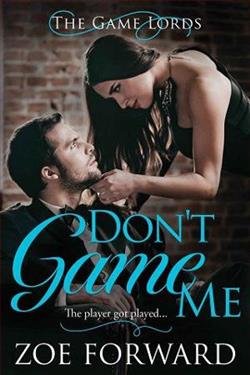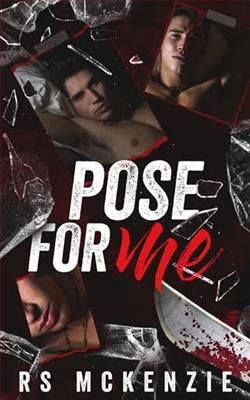Page 89 of Making a Killing
I think it came as some sort of revelation. I mean, it had for me, and I’d thought much more about all this shit than he had. He got keener after that. Kept wanting to talk about stuff in his life – decisions he was making, asking me to help him work out what he wanted to do. And I did. Of course I did. That bit was easy. I looked up some stuff about apprenticeships and he said his dad knew some people who might be able to help, and soon he was messaging me three or four times a day and eventually – of course – he asked if we could meet.
Which we couldn’t. Of course we couldn’t.
So I had to make something up – something that didn’t sound too lame. Only it did – it sounded like a crap excuse because that’s exactly what it was. I said it would be difficult for me to get to Oxford, and he said so where do you live then, and I panicked and said Norfolk, which of course was nothing like far enough, so then I said I’d been getting behind at school and didn’t really have time and he said the man he’d lived with when he was a kid had tried an excuse like that once and it was all just a big lie and wasn’t I doing exactly the same thing and he’d had enough of liars after Her andno way he deserved to be treated like this and who the fuck did I think I was anyway.
Which, of course, was the whole point. Who I was. Who I couldn’t admit to being. So I said I could understand why he was angry, but like I’d told him before, it wasn’t me who was making him feel like that, he was choosing to do it, and just because his sister had been a cow to him didn’t mean I was like that and he just told me to fuck off and that was it.
***
Adam Fawley
27 July 2024
17.55
I don’t like driving, but I don’t mind flying. In fact, I quite like it. I used to like it even better when you had no choice but to turn off your phone. Before they started offering Wi-Fi. However urgent the case, even one bad enough for them to feel justified contacting you on holiday, they couldn’t do it back then. That was before we had Lily, of course. Hard to enjoy a flight when you face the minute-by-minute risk of being the Parent Who Brought A Screaming Baby Into A Confined Space. Though we were lucky in that respect: when Lily was in her terrible twos you weren’t even allowed out of the country. And she was never that terrible anyway. Really. That’s not just proud Dad talking. But today the person in the next seat is Quinn, who is way more fidgety than my daughter ever was and clearly scared stiff, though he’s doing his best not to show it, and I’m not embarrassing him by letting on I’ve noticed. Strange the things you don’t know about people, even after all these years.
Luckily for him, the flight’s so short we barely get up in the air before we’re getting back down again. I’ve never been to Belfast before and all we saw was bad news about NorthernIreland when I was a kid, but these days the Shankill Road is a tourist attraction; there aren’t many unqualified good things in the world, but that has to be one of them.
Quinn was going to get the cabbie to drop us at the hotel, but I decided we should try Madigan’s house on the way. Which may have something to do with the fact that I’d like to get as much as possible done tonight so we can catch the earlier flight home tomorrow, having given up most of my weekend already. Quinn calls O’Grady to get someone to meet us there, and we head east and south towards the city. It’s flat and farms and rural most of the way; another expectation confounded. It’s not till we hit the Crumlin Road and Ardoyne that I get a real sense of what Daisy’s life must have been like these last eight years. Row after row of terraced houses, not much more than two-up two-down, pebble-dash on some, loft extensions on others, most of the gardens paved or concreted. Aside from the murals, it doesn’t look so different to Blackbird Leys. What it definitelydoesn’tlook like is North Oxford. The driver is giving us an abbreviated version of the Belfast black-cab tour all the while, but it’s hard to reconcile the horrors he’s talking about with these quiet and largely empty streets.
Five minutes later we pull up outside Madigan’s house. One of those textured glass doors that must be at least forty years old, a bay window striped with vertical blinds. There’s no grass out front, but it’s tidier than most of its neighbours, the bins behind a piece of trellis and a window box on the ground-floor sill. The geraniums in it are all dead.
The only sign of life this end of the street is a young woman perched on the front wall, looking at her phone and smoking. As soon as she sees us she gets up quickly and throws the fag, then smooths her skirt and comes towards us.
‘DC Marie Ryan,’ she says, extending a hand.
‘DCI Fawley, DI Quinn. Thanks for being here. It’s a while since I did any house-to-house so I’m a bit rusty. And I suspect this will be better coming from you anyway.’
She smiles, showing a dimple. She has blonde hair in a ponytail and very green eyes. ‘Of course, sir, glad to help. You’re interested in the resident here, that’s right?’
‘Her and her daughter, yes. The girl, Sabrina, travelled to England on June 14th, but we don’t know why she went, or where either of them are now.’
‘Well, I haven’t seen any signs of life from the house since I’ve been here, and judging by those poor geraniums –’
‘I agree, but let’s try anyway. And failing that, talk to the neighbours.’
She looks at me and then at Quinn. ‘OK, then, so shall we go?’
No answer at Madigan’s, and I can see through the glass that it must be at least a week since anyone’s picked up the post. In fact, given the confinement of their lives, maybe a whole lot longer. We won’t get in there without a warrant, but it’s the PSNI who’ll have to handle that. And in any case, I’m not sure if it’ll tell us what we really need to know: I doubt Kate Madigan ever leaves much by way of a trail.
We move to the house on the left, which is painted dark pink and has shutters added upstairs, along with some fancy white fretwork along the edge of the roof. It reminds me – unfairly, probably – of the crochet toilet-paper lady my grandmother used to have on her loo. The net curtains are fancy too, and they’re on the move.
‘It’s a Mr and Mrs McCafferty,’ says Ryan, consulting her notes. ‘Lesley and Arthur. An elderly couple. They’ve lived here a good long while, so probably the noticing type.’
We exchange a dry smile: it’s standard police-speak for Bloody Awful Nosy Parkers.
I could have guessed their age anyway from the time it takes them to get from gawping through the curtains to coming to the door.
It starts to open, but only grudgingly.
‘What do you want?’
I tell myself that this is an old lady, possibly home alone,with three strangers suddenly at her door, all of whom must look worryingly official.
‘Mrs McCafferty, is it?’ says Ryan with a smile. ‘DC Ryan from the Tennent Street police station. Would you have a minute?’
‘What’s it about?’ she says, gripping the door, then gesturing at me and Quinn with her chin. ‘And who might they be?’















